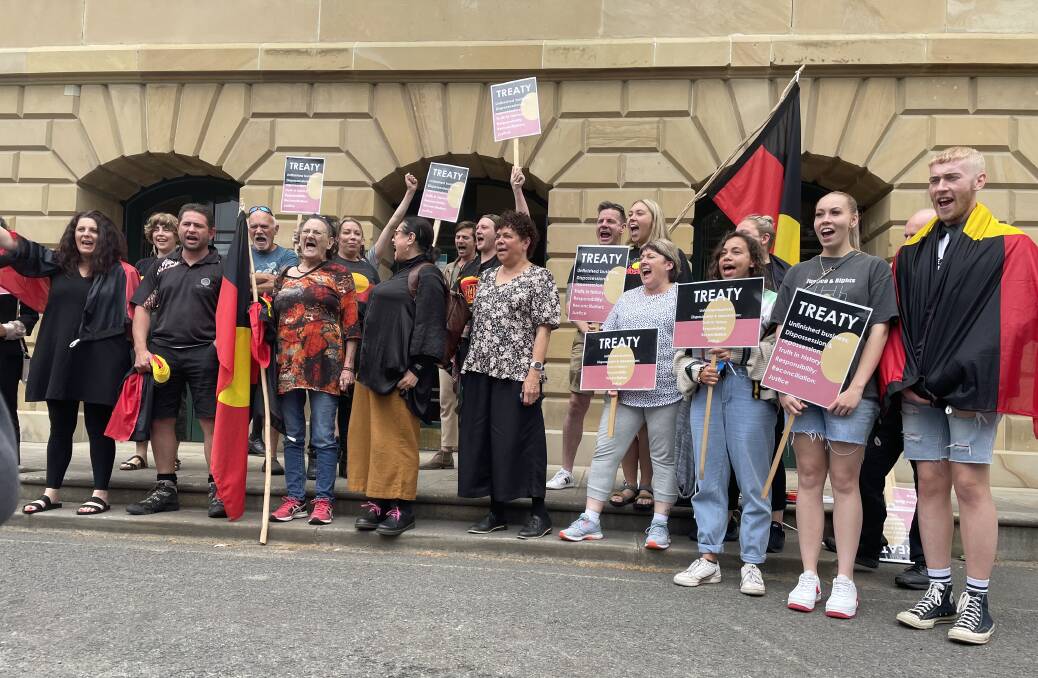
On August 6, 1831, George Augustus Robinson made a fateful promise to Aboriginal warrior Mannalargenna at Little Musselroe Bay.
Subscribe now for unlimited access.
$0/
(min cost $0)
or signup to continue reading
Commissioned by the Governor, Robinson told him that should attacks on settlers end, they could return to their own districts and be given protection.
Five months later, he made a similar promise to two leaders at Lake Echo who subsequently put themselves under his protection.
But Tasmania's Aboriginal people were never able to return to their own districts, were imprisoned on Flinders Island and the survivors placed at Oyster Cove. In 1846, a petition to Queen Victoria urged the Crown to acknowledge these promises, to no avail.
For 190 years, the quest for treaty has endured.
On Thursday, Premier Peter Gutwein released the Pathway to Truth-Telling and Treaty report, completed by former governor Kate Warner and law professor Tim McCormack based on more than 100 meetings over four months with Tasmanian Aboriginal people.
It provides the clearest path yet to a long-awaited treaty in Tasmania, that would be the first of its kind in Australia.
Truth-telling and treaty
The report recommends a Truth-Telling Commission with the goal of creating a permanent record of the past to clarify the historical record, "quashing the extinction myth", preserving the memories of Aboriginal elders and educating the public on past injustices.
The commission should be chaired by either one or two Aboriginal leaders and be majority-Aboriginal.
To start the treaty process, the government should legislate a broad framework that has at its heart a recognition that "Aboriginal sovereignty has not been extinguished" but that it coexists with the Crown, along with reparations for colonisation.
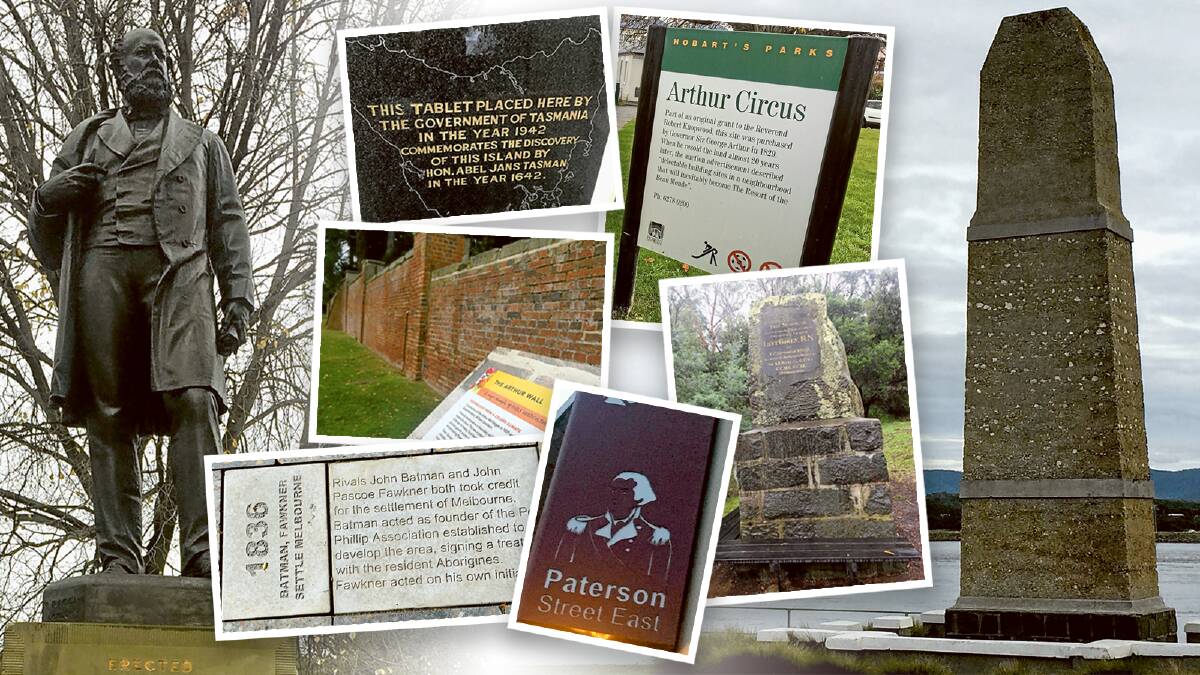
The Truth-Telling Commission would determine eligibility of those to negotiate treaty with the government.
Mr Gutwein said it was crucial that all voices were heard.
"It is evident from the report that the next steps of this journey will be complex, as there are many Tasmanian Aboriginal voices, and not all of those voices align, but importantly, all of these views need to be heard," he said.
"Importantly, we must keep listening to, and be guided by, Tasmanian Aboriginal people."
Other recommendations include establishing an Aboriginal consultative body to engage with the government on policy, for the Truth-Telling Commission to deal with the question of Aboriginality, and various options for creating a new category of reserve land called an Aboriginal protected area.
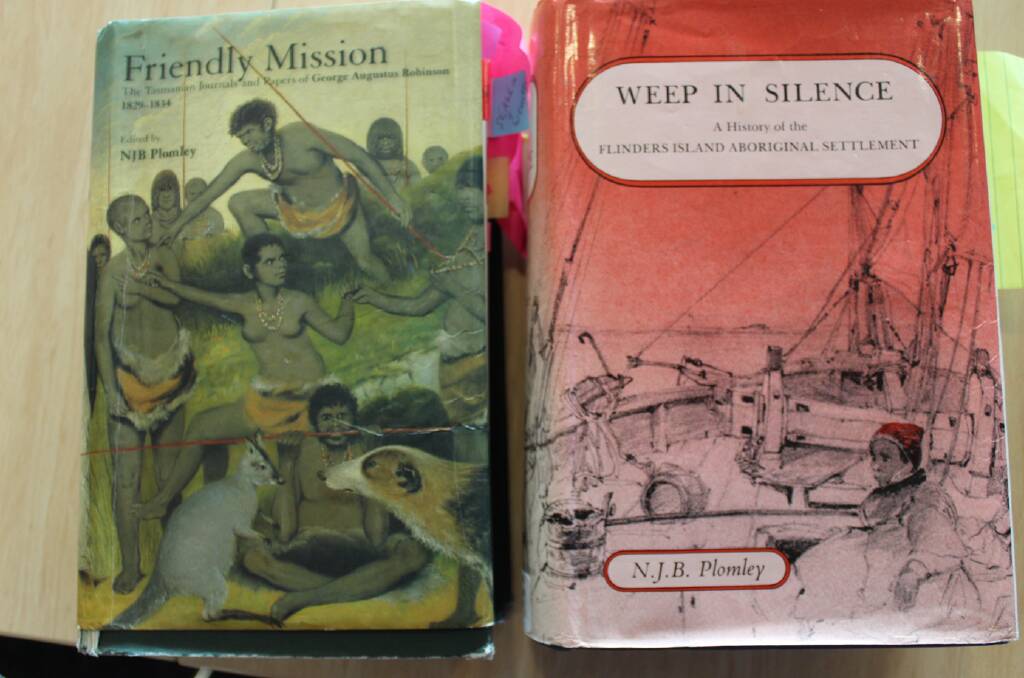
Suggestions for Aboriginal protected areas were kooparoona niara in the Western Tiers, and kunanyi/Mount Wellington. There have been no significant land handbacks since 2005, the report notes.
The report urged the government to reform the Aboriginal Heritage Act and to provide more funding to the "grossly under-resourced" Aboriginal Land Council of Tasmania.
Other recommendations sought to resolve ongoing disagreements over the use of palawa kani in place naming and language revival.
Hopes for a successful process
While treaty negotiations in Victoria have stalled for over five years, there were hopes that Tasmania could provide an example for a genuine whole-of-community process.
Mr Gutwein said it was a matter that all Tasmanians should hold close to their heart, given the state's history of injustices.
"Take the time to reflect on those voices, understand the hurt, the abandonment and the sadness, but also the strength of character, connection to country and the pride that shines through in those voices, which have for so long, fought for something better; for acknowledgement and for respect," he said.
The government has committed to responding to the recommendations at the start of the 2022 parliamentary year.
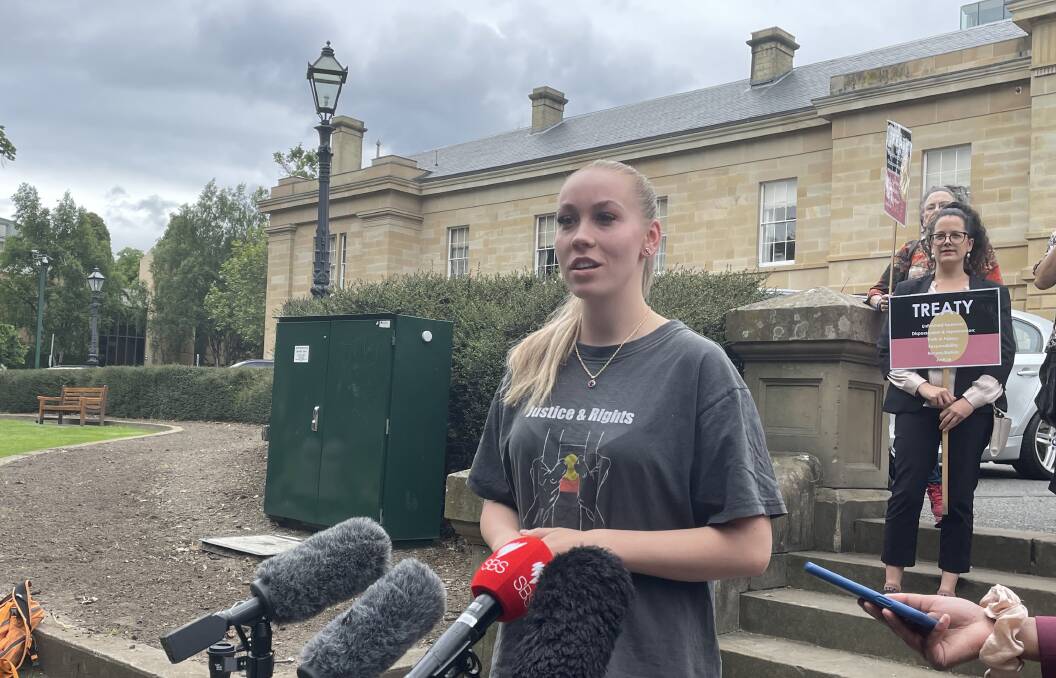
Tasmanian Aboriginal Centre spokesperson Nala Mansell said it was a proud day to see the treaty process taking a step forward.
"We really support the Premier's achievements, for him to stand up as the Premier, the first Premier in the history of lutruwita/Tasmania to have done so, we really applaud him," she said.
"It would bring nothing but joy in honour of our ancestors, in honour of our elders, and all those Tasmanian Aboriginal people who have fought so hard for small areas of land to be returned, for Tasmanian Aboriginal people to be given recognition for the protection of our heritage."
Other measures she would like to see considered were the removal of monuments that caused trauma for the Aboriginal community, such as the William Crowther statue in Hobart's Franklin Square.
Aboriginal Tasmanians see a huge step forward
Her views were echoed by 21-year-old palawa woman Kitana Mansell, who said it would be a huge step for the community to achieve treaty and genuine truth-telling.
"I feel a sense of relief that it's actually being spoken about now in Parliament, and I feel like it's really good that we've got our whole community backing us up to be able to support this," she said.
"But I definitely really need to see some action.
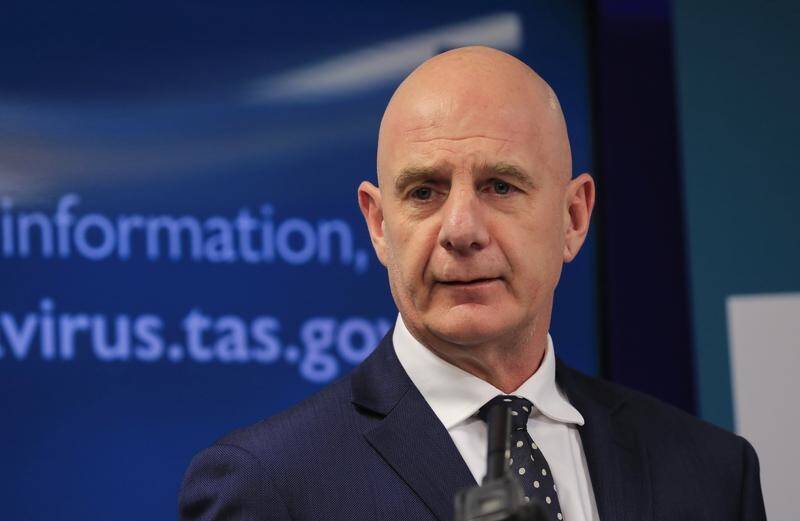
"I really want to make sure that this happens and this goes through, and it's not just spoken about."
The report was welcomed by Labor, the Greens and independents.
Labor leader Rebecca White said the party was "committed to treaty", and believed the truth-telling process would be a powerful tool for reconciliation.
"With the telling of stories from our history across our community there is likely to be pain, anger, remorse, guilt, shame as well as feelings of elation that despite attempted genocide, Tasmania's first people continue to survive today," she said.
Greens leader Cassy O'Connor pointed out how there were no Aboriginal members of Parliament in Tasmania, and that the process must ensure Aboriginal representation.
"Lutruwita/Tasmania is stolen land. It was nurtured by its people over 50 000 years or more, then taken at the point of a gun from Aboriginal people soon after the arrival of the English in 1803," she said.
"There can be no more broken promises, and no more false hope."
What do you think? Send us a letter to the editor:
Our journalists work hard to provide local, up-to-date news to the community. This is how you can continue to access our trusted content:
- Bookmark www.examiner.com.au
- Make sure you are signed up for our breaking and regular headlines newsletters
- Follow us on Twitter: @examineronline
- Follow us on Instagram: @examineronline
- Follow us on Google News: The Examiner


